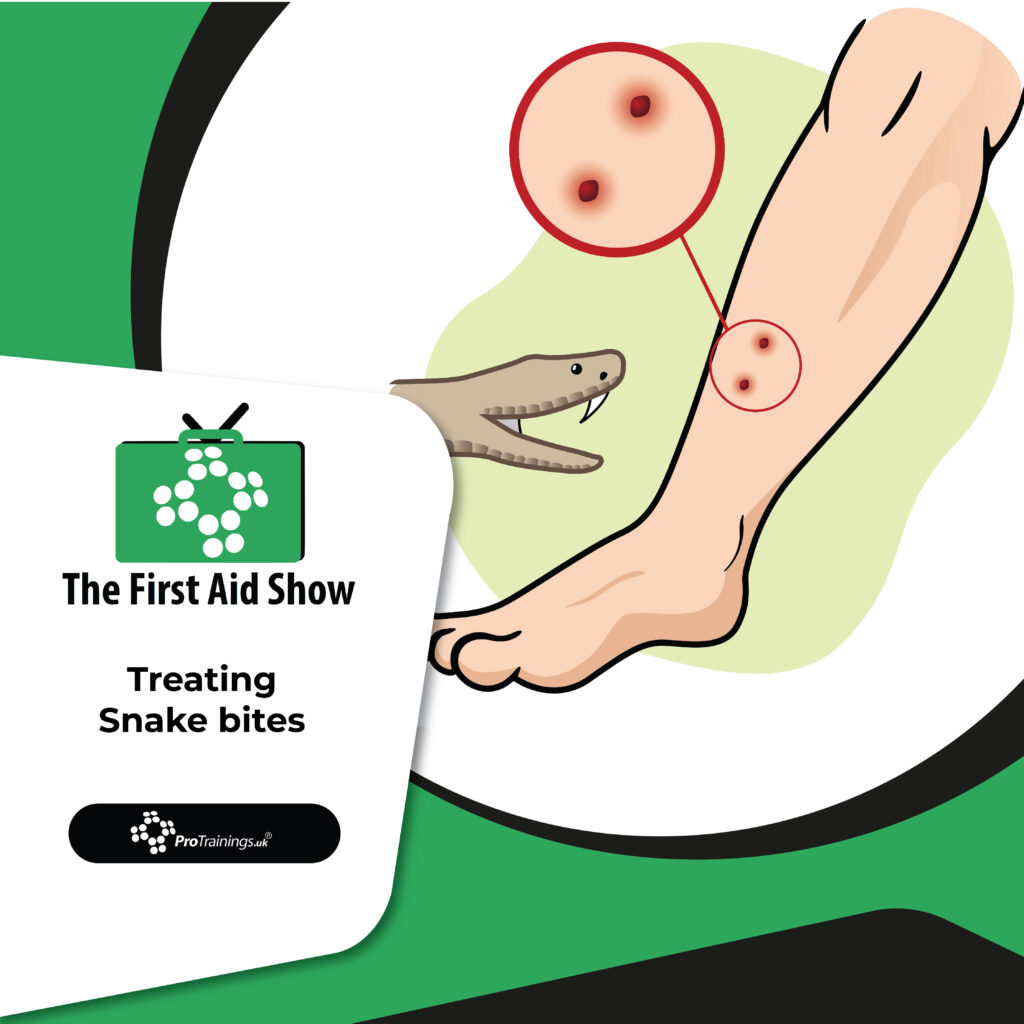Snake Bites in the UK: A First Aid Guide
In the UK, the adder is the sole venomous snake. Though its bite isn’t typically fatal for humans, it’s crucial to address it promptly.
Snake Bites: Facts and Precautions
- Native vs. Exotic Snakes: The UK’s native venomous species is the adder. While other harmful snakes might be kept as pets, you won’t find them in our countryside.
- Snake Behaviour: Generally, snakes aren’t aggressive. They’d rather avoid humans but will bite if threatened, especially if startled or provoked by pets.
- Peak Season: Most adder bites occur from February to October, with the height of the season being from June to August.
Identifying a Snake Bite
- Bite Location: Bites often occur on the toes or feet. However, a significant number of incidents involve the hands, particularly when individuals try to handle or harm the snake.
- Initial Symptoms: Initially, a snake bite might feel akin to a wasp sting. The pain quickly escalates, especially if the bite is on the foot, making walking a challenge. The affected area can become swollen, with red blotches potentially appearing on the body.
- Severe Symptoms: These can include dizziness, chest pain, vomiting, respiratory issues, stomach pain, and in grave situations, loss of consciousness. An anaphylactic reaction is also possible, characterised by swelling of the tongue or throat and breathing difficulties.
Immediate Action for Snake Bites
- Medical Attention: It’s paramount to seek hospital treatment to receive the appropriate anti-venom.
- Snake Identification: If safe, take a moment to observe the snake or take a photo. This can assist medical professionals in determining the optimal treatment.
- Emergency Measures: Ring the emergency services, make a note of when the bite occurred, reassure the victim, and limit movement of the affected limb to slow the spread of venom. Utilise a sling for an arm or tie legs together gently.
- Managing Swelling: Remove any jewellery near the swollen area. It’s advised not to put a tight bandage over the bite. If pain relief is required, opt for paracetamol over ibuprofen, as the latter can intensify bleeding.
- Splinting & Tracking: Using a splint can further deter movement. To monitor swelling, mark its boundary with a pen and record the time.
- Exotic Snake Bites: If the bite is from an exotic species, apply a pressure bandage over the limb to deter venom absorption, and consistently check vital signs.
Want More Information?
For detailed first aid training or to browse equipment, contact 01206 805359 or email support@protrainings.uk. Additionally, visit www.protrainings.uk for training courses and www.first-aid-online.co.uk for equipment options.


